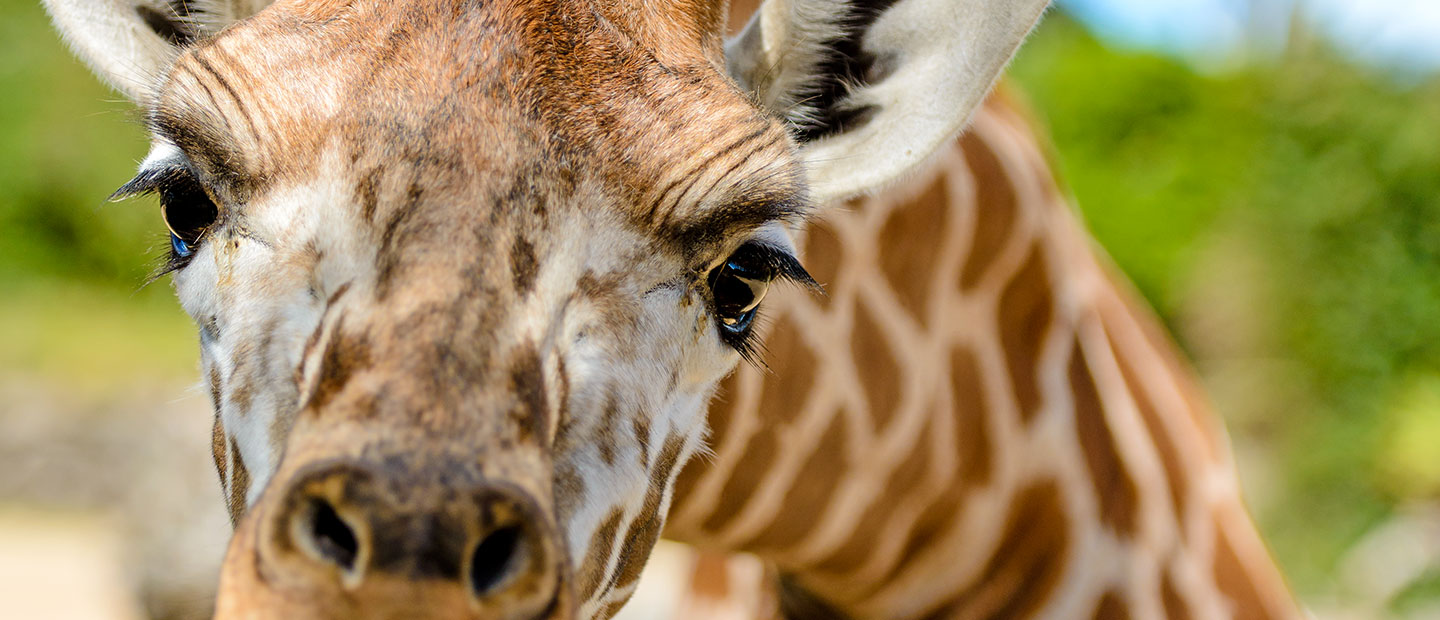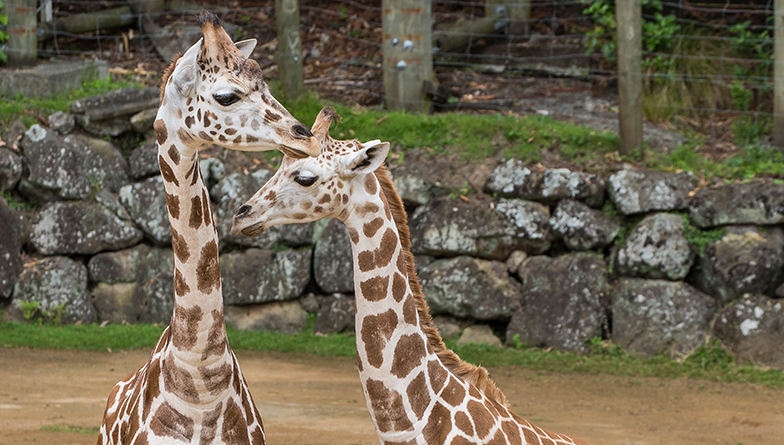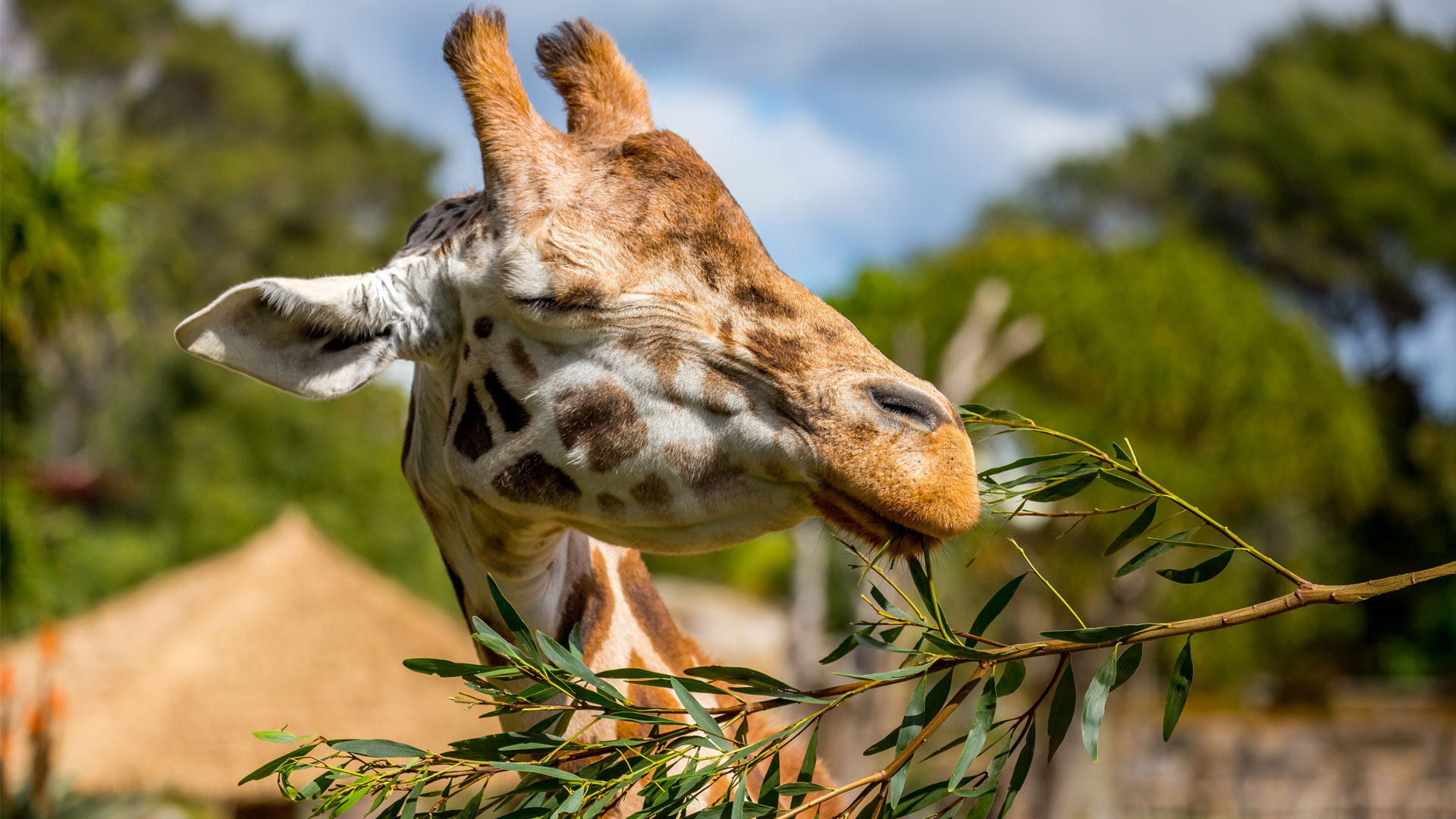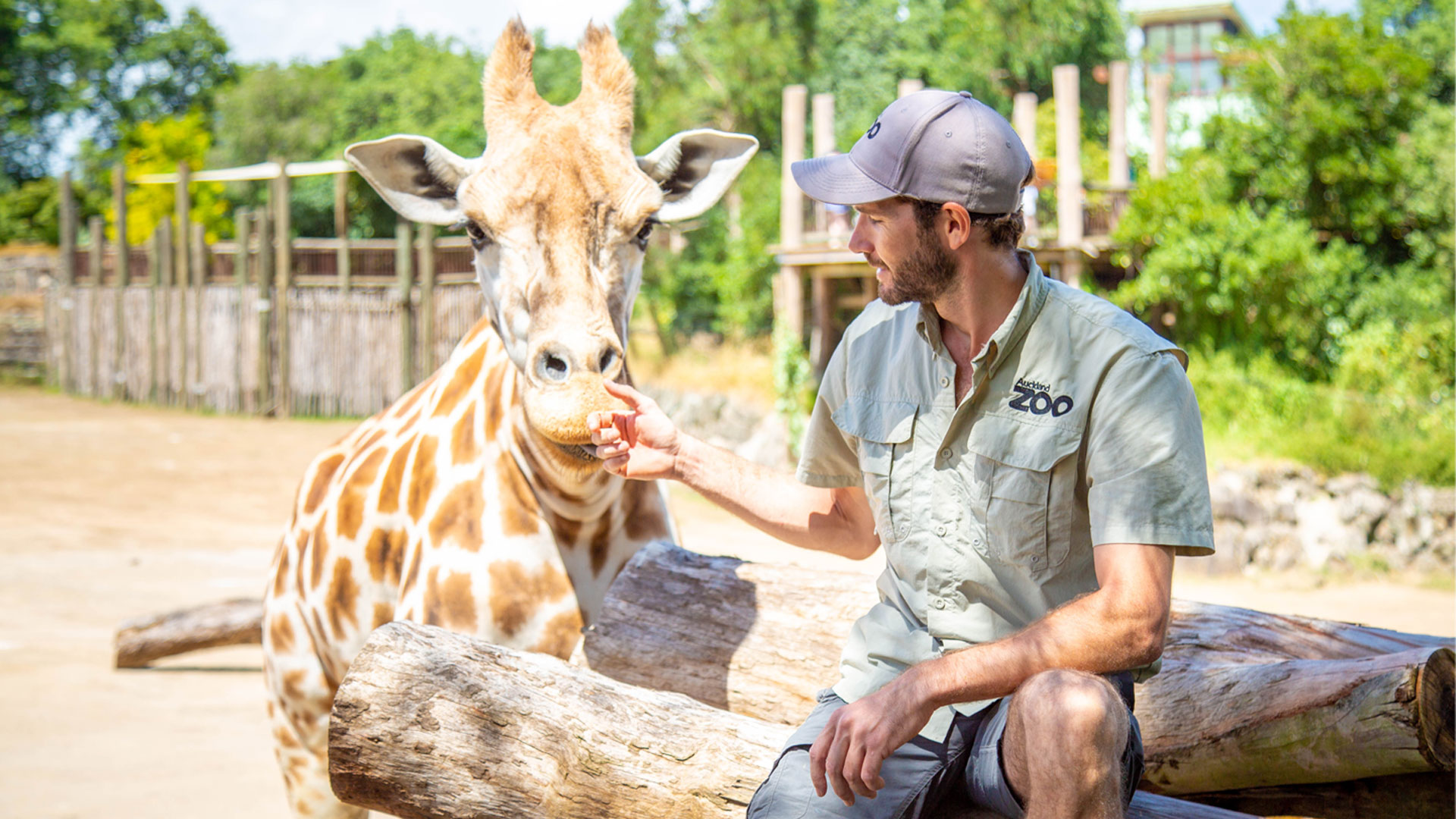Long necks and long legs
One of the first things you notice about a giraffe is that incredibly long neck, which surprisingly has just seven vertebrae – the same as a human neck! Male giraffes use their neck like a sword to fight other male giraffes. What are they fighting about? Usually a female!
Their long necks also help giraffe to reach the highest leaves to feed on. However, not that helpful when it comes to drinking water. Have you ever experienced a rush of blood to the head when you stand up too quickly? Imagine what it would be like if your neck was as long as a giraffe’s!? Luckily, they have a large heart (weighing up to 11kg) and high blood pressure so they can pump the blood up to their brain. They also have elastic blood vessels and double valves to prevent that sudden rush of blood to the head.
The long legs of a giraffe are also pretty special! These legs can help them reach speeds of up to 50-60km an hour, although they can only sustain these speeds for short periods of time. With long legs that can extend in any direction, and lethal kicks that can kill even a lion, these long legs are not only handy, but can indeed be life-saving!





